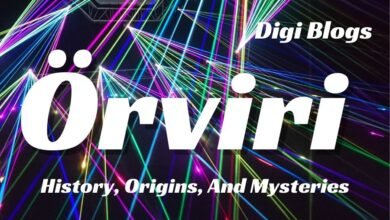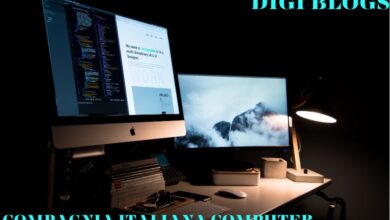The Symphony of Healing: Music as Art Therapy in Courses4me’s Curriculum
Music, with its profound ability to touch the very core of our being, offers more than just entertainment—it serves as a bridge to our deepest emotions, a therapeutic tool that transcends the conventional. In the hustle and bustle of modern life, where stress and anxiety loom large, the soothing melodies and harmonies of music can act as a sanctuary, offering solace and a sense of peace. Its universal appeal and ability to convey what words cannot make it an invaluable ally in the journey towards emotional and mental wellness.
Amidst this backdrop, certain forward-thinking educational platforms have started to acknowledge the therapeutic potential of music, integrating its use into their teaching methodologies. Courses4me stands out in this regard, incorporating music as a pivotal element of art therapy within its diverse curriculum. This approach not only highlights the role of music beyond mere entertainment but also showcases its effectiveness in fostering emotional healing and personal growth. By doing so, Courses4me exemplifies the innovative use of music for therapeutic purposes, setting a precedent for educational systems worldwide.
How Can Music Powerfully Influence Healing?
Music’s unique ability to touch our lives goes far beyond mere entertainment, serving as a profound tool for emotional expression, connection, and therapy. As we explore the therapeutic potential of music, its role in promoting mental and emotional well-being becomes increasingly clear. Here is how music can influence healing:
- Emotional Expression and Release: Music provides a vital outlet for expressing and releasing emotions, aiding in the healing process by allowing individuals to explore and confront their feelings in a safe, creative environment.
- Building Connections: It fosters community and empathy among participants, breaking down barriers and combating isolation through shared experiences and understanding.
- Enhancing Cognitive Function: Music therapy has been shown to improve cognitive abilities, including memory, attention, and problem-solving skills, by engaging different parts of the brain.
- Stress Reduction: Listening to or playing music can significantly reduce stress levels, lowering cortisol production and the body’s stress response, promoting relaxation and well-being.
Music Therapy in Educational Curriculums
Music therapy’s integration into educational curriculums represents a transformative approach to learning, emphasizing the holistic development of students. By weaving music into the fabric of education, learners are provided with a unique opportunity to enhance their creativity, boost cognitive functions, and cultivate emotional intelligence. This comprehensive educational experience goes beyond mere academic preparation, arming students with the essential life skills needed to navigate the complexities of the world with resilience and empathy.
Furthermore, the practice of music therapy in educational settings stands as a beacon of accessibility and inclusivity. It extends the therapeutic benefits of music to a broad spectrum of individuals, transcending age, background, or ability barriers. Educational platforms that embrace music therapy, such as Courses4me, champion a learning environment deeply committed to fostering the mental and emotional well-being of every participant. This commitment ensures that all students have equal opportunities to benefit from the healing and developmental powers of music, making education a more inclusive, supportive, and nurturing journey for everyone involved.
How Does Technology Enhance Music Therapy?
Technology has revolutionized many aspects of our lives, including how we access and benefit from therapeutic interventions. Music therapy, a field that leverages the healing powers of music, has significantly benefited from technological advancements. These innovations have not only made music therapy more accessible but also enriched the experience for participants. Below are key ways technology plays a role in music therapy:
- Expanding Reach: Technology bridges geographical and physical barriers, enabling access to music therapy for individuals who may not have the means or ability to attend in-person sessions. Online platforms and digital tools facilitate the delivery of music therapy services, allowing people to reap its benefits from anywhere.
- Enhancing Interaction: Through digital platforms, music therapy becomes more interactive and personalized. Customizable experiences cater to individual needs and preferences, making the therapeutic journey more effective and tailored to each participant.
- Improving Engagement: Advanced technologies, such as virtual reality (VR) and augmented reality (AR), introduce immersive experiences in music therapy. These tools can simulate environments or situations that enhance engagement, deepen the therapeutic impact, and make sessions more appealing and effective for participants.
The Future of Music as Art Therapy
As we look ahead, the landscape of music as art therapy is poised for significant transformation and growth. The continuous fusion of research and technological innovation is breeding ground for novel methodologies that enhance the therapeutic capabilities of music. These advancements promise not only to bolster the effectiveness of music therapy but also to expand its creative potential, offering new pathways for healing and expression.
Simultaneously, a broader societal recognition of the benefits of music therapy is fostering a more inclusive and holistic view of health and well-being. This growing endorsement is propelling music therapy beyond the confines of educational programs, into diverse settings where its impact can reach a wider audience. The evolving perception of music therapy underscores a pivotal shift towards embracing more integrated and accessible forms of therapeutic intervention, heralding a future where music’s healing power is universally acknowledged and embraced.
Harmonies of Healing: Embracing Music Therapy
Music, in its essence, is a symphony of emotions, expressions, and connections. Its integration into Courses4me’s curriculum as a form of art therapy is not just innovative but a testament to the healing power of melody and rhythm. By embracing music’s therapeutic qualities, we open up new avenues for healing, growth, and connection. As we move forward, the symphony of healing will undoubtedly play a more prominent role in not just educational platforms but in the broader landscape of therapy and well-being. Through the universal language of music, we find a shared path to healing and hope, proving that sometimes, the most profound therapy comes not from words, but from the heart-stirring harmonies of a song.




